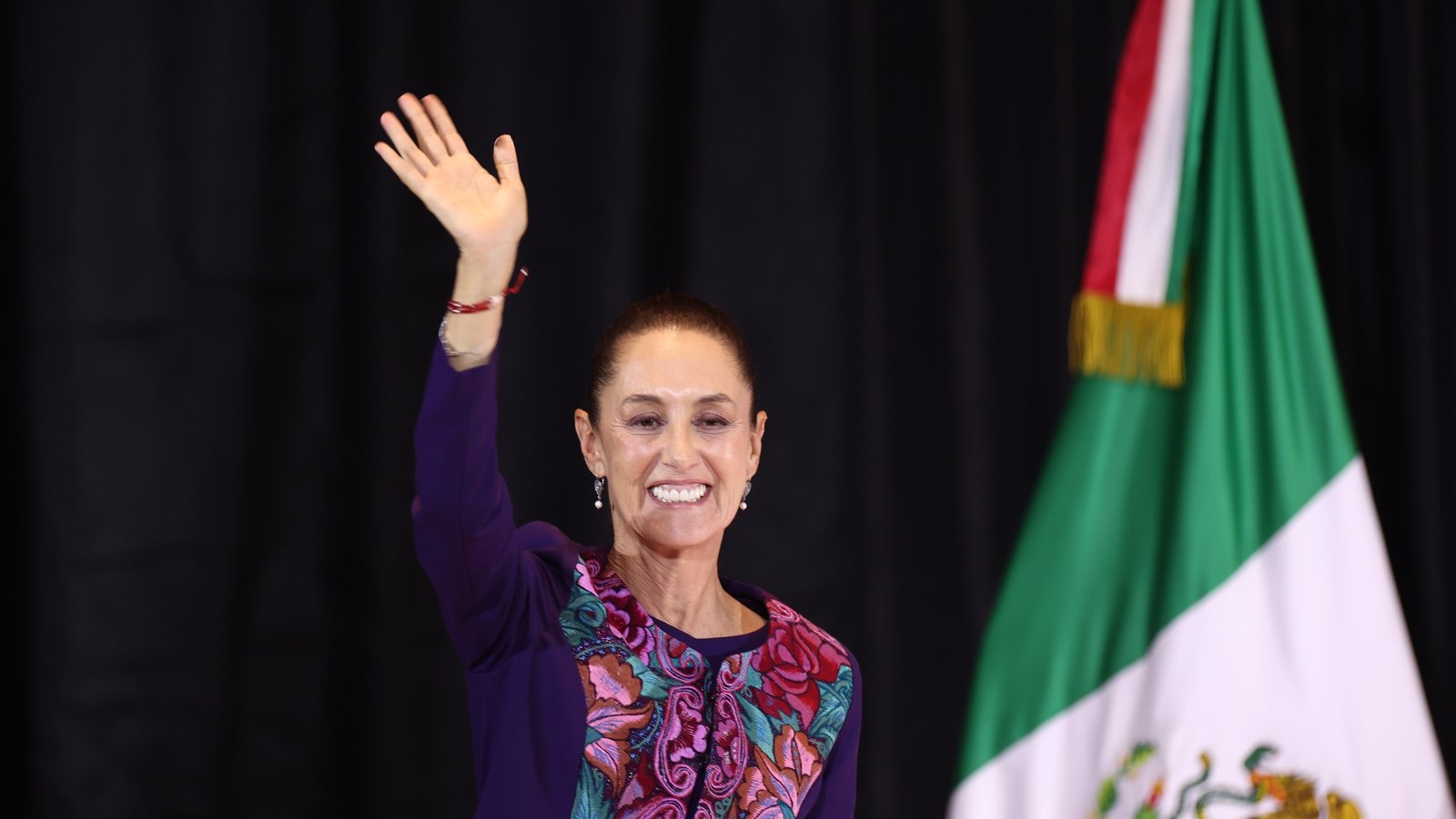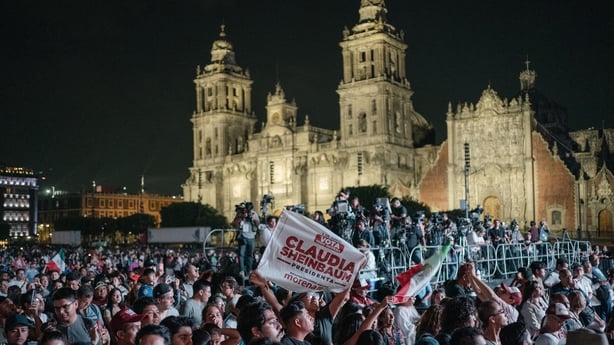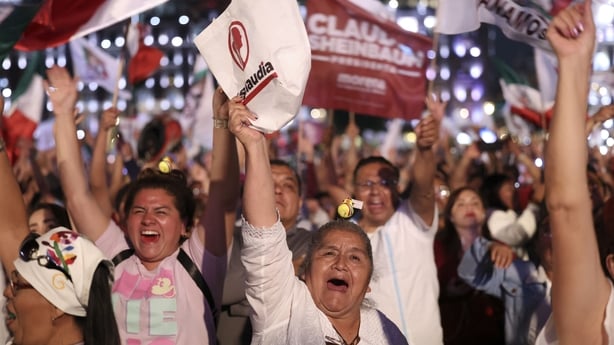Sheinbaum becomes Mexico’s first woman president

Claudia Sheinbaum has won a landslide victory to become Mexico’s first female president, inheriting the project of her mentor and outgoing leader Andres Manuel Lopez Obrador whose popularity among the poor helped drive her triumph.
Ms Sheinbaum, a climate scientist and former mayor of Mexico City, won the presidency with between 58.3% and 60.7% of the vote, according to a rapid sample count by Mexico’s electoral authority.
That is set to be the highest vote tally percentage in Mexico’s democratic history.
The ruling coalition was also on track for a possible two-thirds super majority in both houses of Congress which would allow the coalition to pass constitutional reforms without opposition support, according to the range of results given by the electoral authority.
“For the first time in the 200 years of the republic I will become the first woman president of Mexico,” Ms Sheinbaum told supporters to loud cheers of “president, president.”
Opposition candidate Xochitl Galvez took between 26.6% and 28.6% of the vote, preliminary results showed.
Ms Galvez said that she had conceded defeat, telling supporters: “A few minutes ago I contacted Dr. Claudia Sheinbaum to acknowledge the results of the election.”
Voters had flocked to polling stations across Mexico, despite sporadic violence in areas terrorized by ultra-violent drug cartels.
Thousands of troops were deployed to protect voters, following a particularly bloody electoral process that has seen more than two dozen aspiring local politicians murdered.
Earlier, Ms Sheinbaum hailed what she called a “historic” election day.
After casting her ballot, she revealed she had not voted for herself but for a 93-year-old veteran leftist, Ifigenia Martinez, in recognition of her struggle.
“Long live democracy!” Ms Sheinbaum declared.
After the polls closed, Ms Galvez had urged her followers to closely monitor the count.
“We are competing against authoritarianism and power and they are capable of anything,” said the 61-year-old senator and businesswoman with Indigenous roots.

Mexican women going to the polls had cheered the prospect of a woman breaking the highest political glass ceiling in a country where around ten women or girls are murdered every day.
“A female president will be a transformation for this country, and we hope that she does more for women,” said Clemencia Hernandez, a 55-year-old cleaner in Mexico City.
“Many women are subjugated by their partners. They’re not allowed to leave home to work,” she said.
Daniela Perez, 30, said that having a woman president would be “something historic,” even though neither of the two main candidates was “totally feminist” in her view.
“We’ll have to see their positions on improving women’s rights, resolving the issue of femicides – which have gone crazy – supporting women more,” added the logistics company manager.
Nearly 100 million people were registered to vote in the world’s most populous Spanish-speaking country, home to 129 million people.
Ms Sheinbaum owes much of her popularity to outgoing President Lopez Obrador, who has an approval rating of more than 60% but is only allowed to serve one term.
In a nation where politics, crime and corruption are closely entangled, drug cartels went to extreme lengths to ensure that their preferred candidates win.

Hours before polls opened, a local candidate was murdered in a violent western state, authorities said, joining at least 25 other political hopefuls killed this election season, according to official figures.
In the central Mexican state of Puebla, two people died after unknown persons attacked polling stations to steal papers, a local government security source told AFP.
Voting was suspended in two municipalities in the southern state of Chiapas because of violence.
Ms Sheinbaum has pledged to continue the outgoing president’s controversial “hugs not bullets” strategy of tackling crime at its roots.
Ms Galvez vowed a tougher approach to cartel-related violence, declaring “hugs for criminals are over.”
More than 450,000 people have been murdered and tens of thousands have gone missing since the government deployed the army to fight drug trafficking in 2006.
The next president will also have to manage delicate relations with the neighboring United States, in particular the vexed issues of cross-border drug smuggling and migration.
As well as choosing a new president, Mexicans voted for members of Congress, several state governors and myriad local officials – a total of more than 20,000 positions.





